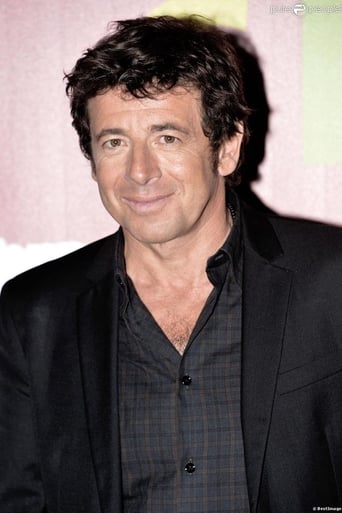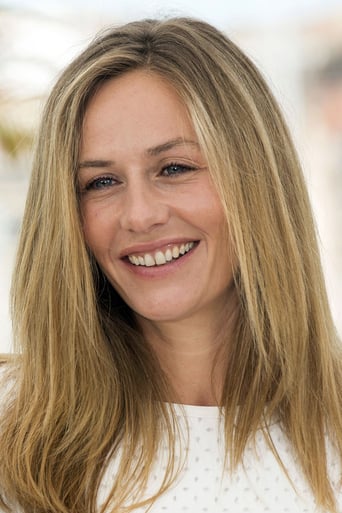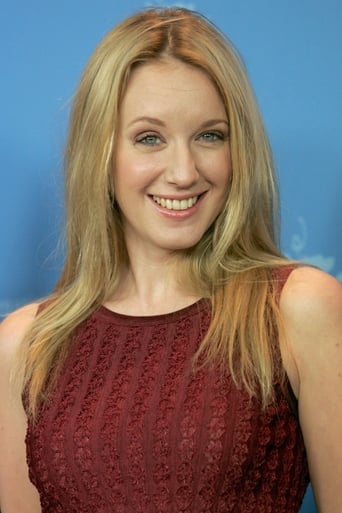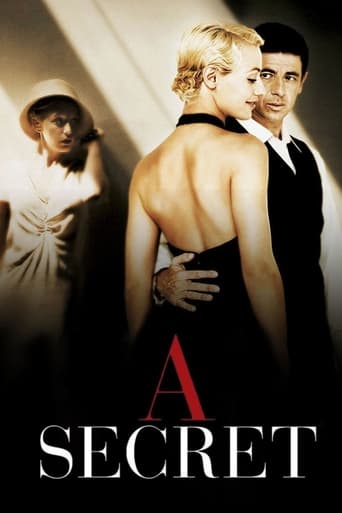
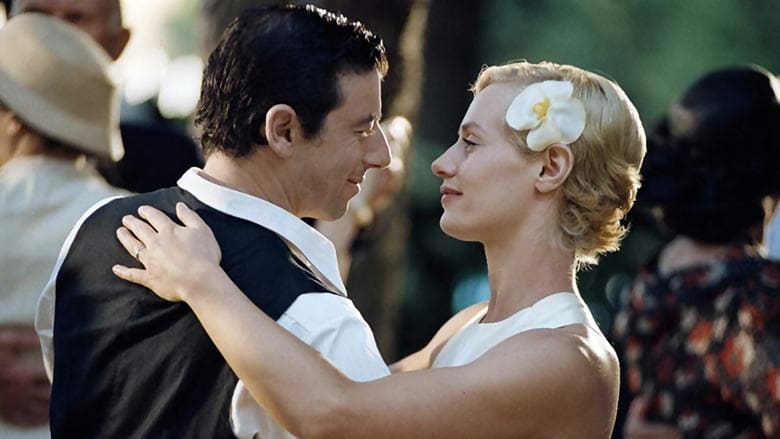
A Secret (2007)
In 1953, a sensitive French boy finds out from a neighbor that his family's Jewish. François Grimbert becomes a physician, and gradually peels the layers of his buried family history which resulted in his difficult upbringing, raised as Catholic by his "Aryan" appearing parents. His athletic father labored to stamp out stereotypical Jewish characteristics he perceived in his son, to keep the family's many secrets, as most relatives fought in World War II, and later were hauled off to labor and death camps by the Gestapo.
Watch Trailer
Cast
Reviews
Sadly Over-hyped
Plenty to Like, Plenty to Dislike
Excellent and certainly provocative... If nothing else, the film is a real conversation starter.
The film may be flawed, but its message is not.
This is the story of a French Jewish family that spans the years from the mid-1930s to the mid-1980s. The opening scenes, taking place in 1955, introduce us to two of the principal characters, Francois at age 7 and his mother Tania. Francois is seen as shy, skinny, and nonathletic, which is a contrast with his mother's being, strong, beautiful and an accomplished swimmer. Soon the scene shifts to 1985 where Francois is dealing with a shy son of his own. There is an unexpectedly touching scene where Francois' son tenderly grasps his father's arm while seated next to him at a table. The 1985 scenes are filmed in black and white and that helps in keeping the time frames straight, since there are many time shifts. In movies that jump around in time I always wonder what the effect would have been to present the story in a linear way. But, since we are kept in the dark about the secret referenced in the title, the plot device of jumping back and forth in time is a logical plot device and it required my attention.In 1955 we are introduced to Francois' father Maxime and Louise (a close family friend). Maxime is a handsome, athletic guy and that advances the theme of Francois' being mismatched in physical ability to Maxime and Tania. Francois feels that he is a disappointment to his dad. As portrayed, Maxime was in fact disappointed with Francois; a big reason why is revealed in the flashbacks to the 1930s.Early on in the 1930s Maxime is seen wanting to deny his Jewishness. It was not clear to me if he could see what was coming down the pike with the Nazis or whether his denial was coming from some more philosophical, intellectual, or intuitive basis. In one voice-over Francois comments, "Playing sports made dad hope he could erase his origins." In any case, how the characters relate to their Jewishness is at the very heart of the story.There is no end of stories that have come out of the Second World War, even some sixty years later. This movie is one of the better ones that concentrates on a single family's experiences rather than staging big battle scenes. The movie is based on the book, "Memory: A Novel," by Philippe Grimbert; we are told at the beginning that the story and its main characters are based on true events. I found the movie more engaging knowing that.The acting by all concerned is first rate, as is the filming. The unobtrusive score by Zbigniew Preisner is effective. I found the time sequencing, together with the large number of characters, made a first viewing challenging, particularly with having to read the English subtitles. A second viewing was rewarding.
Beautifully filmed - stunning screenplay A simple story beautifully acted by the entire cast.Stunningly beautiful female leads as well.This film gets my vote as one of the best foreign language films I've seen. It can be a little slow moving in parts so it's a film that you want to watch when you are not in any hurry, just sit back and enjoy.The story revolves around Francois growing up in 50's Paris who find out a family secret. It jumps from the 30's - 80's in telling the story and I thought it a nice touch filming the 80's section in black and white. Don't miss if you like good well acted drama.
Though the story told is autobiographical, and tragic, you don't have to care much at all for a couple of the main characters. I found two reasons to loath this movie: 1. The first wife, Tania, so deeply disturbed when she learns of her husband Maxime's attraction to her sister-in-law Hannah, violates her deepest maternal instincts, i.e. to protect her young son Simon, by masochistically revealing herself to be a Jew to the Vichy police (they subsequently perish in an extermination camp).....and only a mile away from safety! Grotesque human behavior by all three of these adults makes them impossible to relate to. 2. Casting anomalies: Jumping back and forth over decades the actors cast look the same age most, if not all of the time. Which confuses the viewer repeatedly about chronology. ( I suppose in the case of the too-old-to- begin-with Patrick Bruel (Maxime), the director just accepted this reality while looking at dailies by rationalizing, "If the audience is going to get hung up over his looking too old then they're not really into the story!" Oh yeah director Miller: Bruel was too old looking in 1937 and looking exactly the same....too old.....twenty years later!) Overall conclusion: This movie reduced the horror of the French-Jewish experience of the Holocaust to a sordid love triangle. Yuch!
Well, I'm very definitely with those who praise this film. I think it's quite excellent.It has many qualities that I value. To begin with, the narrative is entirely believable. I particularly liked the fact that one of the principal characters was a Jew who didn't didn't care much about being a Jew and felt no need to proclaim his Jewishness to the world: there are many Jews like that and they are as entitled to respect as a non-practising Christian or Muslim or anyone else. The knowledge of the son that he's a disappointment to his father rang true. The acceptance by some Jews of the Nazi laws, and the belief of those same Jews that if they obey the laws, wear the star, stay away from public swimming pools, then they will be all right. The desire of those who live through the holocaust to put it behind them rather than dwell on it.I like its directness and understatement. There are no histrionics. The story is told; the audience observes and draws its own conclusions.The acting and directing are uniformly outstanding. I'd never had much time for Cécile de France, but she is perfect in this rôle. Patrick Bruel as the athletic father is just as good, and Julie Dépardieu as the family friend and the three actors who play the son at different times of his life are up there too; in fact, it's unfair to leave anyone out.The director Claude Miller deserves special mention. I haven't seen any of his other films, but I'll look out for him from now on. He handles the film with absolute confidence, never obtruding, but conveying every nuance without faltering. This is a classic example of how simplicity, directness and lack of elaboration can add to the power of a story.This film deserves much more than it's current user rating of 6.7.
